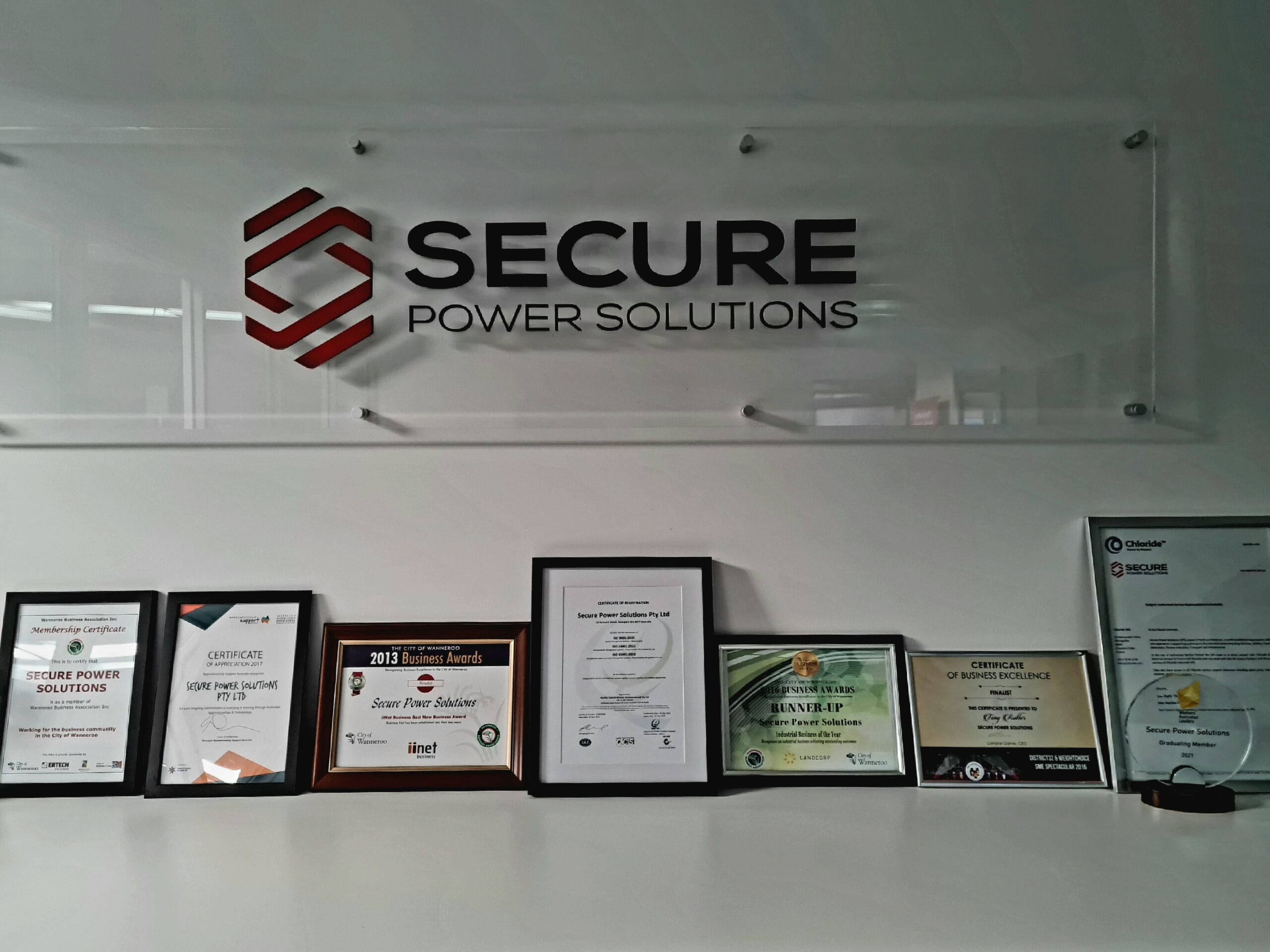Secure Power Solutions (SPS) is committed to leading with purpose and integrity and striving for quality and excellence in everything we do.
As part of this commitment, SPS worked with S&J Consulting to improve our systems and documentation, in preparation for applying for ISO certifications for:
· Quality Management (ISO 9001);
· Occupational Health and Safety (ISO 45001); and
· Environmental Management Systems (ISO 14001).
Following rigorous assessment (including interviews and an ISO auditor reviewing our systems and processes), we are proud to announce we have met all associated criteria and requirements to achieve global accreditations in all of the above.
SPS is now officially ISO certified across several integral areas!
Tony Rutter, Managing Director at SPS, said he is proud of the work SPS has done to become ISO compliant.
“Achieving ISO certification validates that SPS adheres to global standards of quality assurance – that’s something we are really proud to share with our staff and customers,” Mr Rutter said.
“This formally demonstrates that we conduct ourselves efficiently and strive for high quality and will help reduce the compliance work we need to undertake with our clients – streamlining the way we work and how people access our services.
“It’s just another reason we are a step ahead of our competitors,” Mr Rutter said.
Secure Power Solutions was able to apply for ISO certification, thanks to a National and International Standards Compliance grant (part of The Local Capability Fund) through the WA Department of Jobs, Tourism, Science and Innovation.
For more information about what sets SPS apart from our competitors, read our recent blog – The Power of Recycling – how a UPS donation supports communities and the environment, available here.
More about the certifications…
The International Organization for Standardization (ISO) certification is a credential that validates a business’s fulfillment of requirements relating to strict, best practise and highest quality process standards. Internationally agreed upon by experts, each certification has its own set of standards and requirements and a robust assessment process, requiring companies to demonstrate they really are leaders in their fields.
ISO 9001 – Quality Management Systems
ISO 9001 provides organisations with a framework of continual improvement that aims to ensure customer satisfaction, with a processed approach to applying the quality management principles specific to your operations.
Organisations certified to the ISO 9001 standard can provide evidence of their strategic approach to ensuring customer satisfaction and a consistently high-level of quality products and services.
Achieving ISO 9001 aligns with SPS’s passion for providing quality products and services to our valued customers, when they need them the most.
ISO 45001 – Occupational health and safety
ISO 45001 is an International Standard for companies who are serious about improving employee safety, reducing workplace risks and creating better, safer working conditions.
According to the International Labour Organization, more than 7,600 people die from work-related accidents or diseases every single day. That’s why an ISO committee of occupational health and safety experts set to work to develop an International Standard with the potential to save almost three million lives each year.
SPS is proud to align its policies, procedures, and practices with this critical, global safety standard.
ISO 14001 – Environmental Management Systems
As well as just being the responsible thing to do, considering ways to minimise harmful impacts on the environment is becoming increasingly important to meeting regulatory requirements.
ISO 14001 is an internationally recognised set of standards designed to help organisations improve their environmental performance through more efficient use of resources and reduction of waste. Specifically, ISO 14001 provides practical tools for companies to manage their environmental responsibilities, by asking them to analyse and identify opportunities to encourage sustainability in their supply chains, and look for new ways of operating to optimise environmental management strategies


